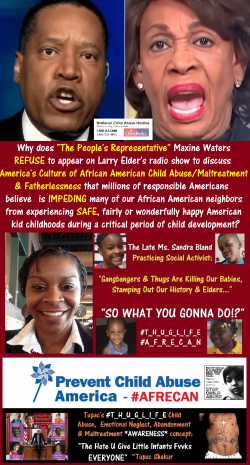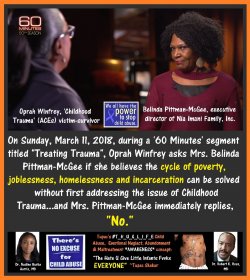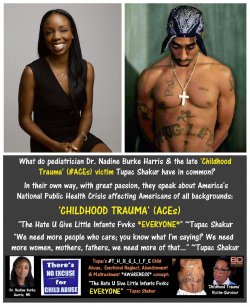Wyatt earp
Diamond Member
- Apr 21, 2012
- 69,975
- 16,383
- 2,180
The Impact of Racial Trauma on African Americans
African American Men and Boys Advisory Board
The Heinz Endowments
February 16, 2010
Walter Howard Smith, Jr., Ph.D.
Avery Jarhman spams and trolls his bullshit every day. The usual suspects suck it up and love it because he validates their racism. The end has come now for Avery
ALL RISE! CLASS IS IN SESSION!
This class is sponsored by Pro Black University
The Honorable IM2, Professor Emeritus.
LESSON 1
African Americans experience specific events of danger related to race that overwhelm the nervous system and require us to recover. These dangers may be real or perceived discrimination, threats of harm and injury, police incidents, and humiliating and shaming events. The aggressors may be black or white. These events stand out in our memory and have long-term impact on our perception of ourselves and our social environments. As mentioned in the previous discussion, some African Americans are stronger after recovering from these events, and others have long-term declines in their ability to cope with future stresses and threats.
A second way African Americans experience danger is witnessing harm and injury to other African Americans because of real or perceived racism. This secondary trauma is widely recognized in the child abuse treatment field and occurs to therapists that repeatedly experience the traumas of abused children. Repeatedly witnessing African Americans suffering on television news is painful, and for some triggers very strong emotion. For example, the Rodney King incident triggered very strong emotional reactions to a publically viewed altercation between police and an African American male. Of course, not every African American watching the incident on television is traumatized but some viewers experienced traumatic responses and needed to recover.
A third way African Americans experience danger related to race is living in difficult social conditions because of poverty and race, and traumatic events occur because of these conditions. Segregation by race and social class is common in the United States, and very common in the Pittsburgh region. Living in black and poor neighborhoods increases one’s risk of experiencing traumatic events like community violence, police incidents, and domestic violence, and it increases the risk of experiencing secondary traumas in witnessing these dangers. These communities are socially isolated, monitored vigorously by police, have fewer resources for daily living (food stores, gasoline stations, hardware stores), and have high levels of exposure to drugs and alcohol.
Poor responses to trauma are visible in large numbers of African Americans living in racially segregated neighborhoods. Some signs include:
• Increase aggression – Street gangs, domestic violence, defiant behavior, and appearing tough and impenetrable are ways of coping with danger by attempting to control our physical and social environment
• Increase vigilance and suspicion – Suspicion of social institutions (schools, agencies, government),avoiding eye contact, only trusting persons within our social and family relationship networks
• Increase sensitivity to threat – Defensive postures, avoiding new situations, heightened sensitivity to being disrespected and shamed, and avoid taking risks
• Increase psychological and physiological symptoms – Unresolved traumas increase chronic stress and decrease immune system functioning, shift brains to limbic system dominance, increase risks for depression and anxiety disorders, and disrupt child development and quality of emotional attachment in family and social relationships
• Increase alcohol and drug usage – Drugs and alcohol are initially useful (real and perceived) in managing the pain and danger of unresolved traumas but become their own disease processes when dependency occurs
• Narrowing sense of time – Persons living in a chronic state of danger do not develop a sense of future, do not have long-term goals, and frequently view dying as an expected outcome
www.heinz.org/.../ImpactOfRacialTraumaOnAfricanAmericans.pdf





